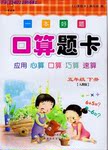题目内容
As the summer time approaches,more and more commercials and advertisements can be seen on the mass media encouraging students to join English study tours abroad. The purpose of these tours is to provide students with an opportunity to learn English in a native speaking environment and use English in real situations. Parents always believe that their children will automatically speak good English after attending these study tours. However,for me,as an English major and former participant of many English study tours,I find these summer tours ineffective.
Parents who send their children abroad for a summer to study English usually believe that the native speaking environment,including the courses,teachers,and host families,can help their children to learn English better. This might be true if the students really study hard and they really get an all-English environment. But the fact is that,most of the time,the tour part is more important than the study part. Although these tours take place in foreign countries,students are rarely exposed in an all-English environment. You will find that,in the morning classes,Taiwanese students would like to stick together and speak Chinese with each other,even though there are some students from other countries. In the afternoon,the students go on a sightseeing excursion with their companions from Taiwan; they speak Chinese,of course. In the evening,when students return to the host families,they would stay in their room and share the day with their roommate,another Taiwanese student. People who speak the same language with you are like a log in the ocean when living in a foreign country where you can not express your?self well,so that you would naturally stick with them. This is especially true with children. An?other unrealistic expectation parents have for these tours is that the experience of living abroad can make their children more independent and mature. However,maturity does not come over?night. It takes time and practice. The most important of all is that they need a good mentor. None of these exist in the study tours.
( ) 1. What's the author's attitude towards the English study tours abroad?
A. Doubtful. B. Positive. C. Negative. D. Neutral.
( ) 2. Which of the following is the most important thing for children who study in an Eng?lish environment according to the writer?
A. Host families. B. Hard work. C. Courses. D. Teachers.
( ) 3. Why are students rarely exposed in an all-English environment?
A. The study tour itself makes it less important for students to expose themselves in an all-English environment.
B. Staying with the students from the same country makes study easy abroad.
C. They only want to stay with their English teachers.
D. They are not sure about their spoken English.
( ) 4. What makes parents send their children to join English study tours abroad according to the text?
A. Parents' misunderstanding to the ads.
B. Parents' lack of information.
C. Parents' unrealistic expectation.
D. Parents' social experience.
1-4 CBAC
A篇:作者想要告诉父母:让孩子署假出国旅行学英语并不一定有好的效果。
1. C作者态度题。从第一段最后一句"I find these summer tours ineffective."可知作者对于这种方式是否定的。
2. B细节理解题。从第二段"This might be true if the students really study hard and they really get an all-English environment."可以看出,环境再好也还是要以学生努力学习为前提,否则,就达不到目的。
3. A细节理解题。从第二段第三句话"But the fact is that,most of the time,the tour part is more important than the study part."可以推断,旅行活动本身会让学生认为旅游比学习更重要。
4. C主旨大意题。作者在文中分析父母们的心态时指出:父母让孩子参加这类活动主要是自己想当然地认为孩子在所谓的全英语环境里就能把英语学好,并且能变得成熟。其实这只是他们一厢情愿的想法。

 一本好题口算题卡系列答案
一本好题口算题卡系列答案